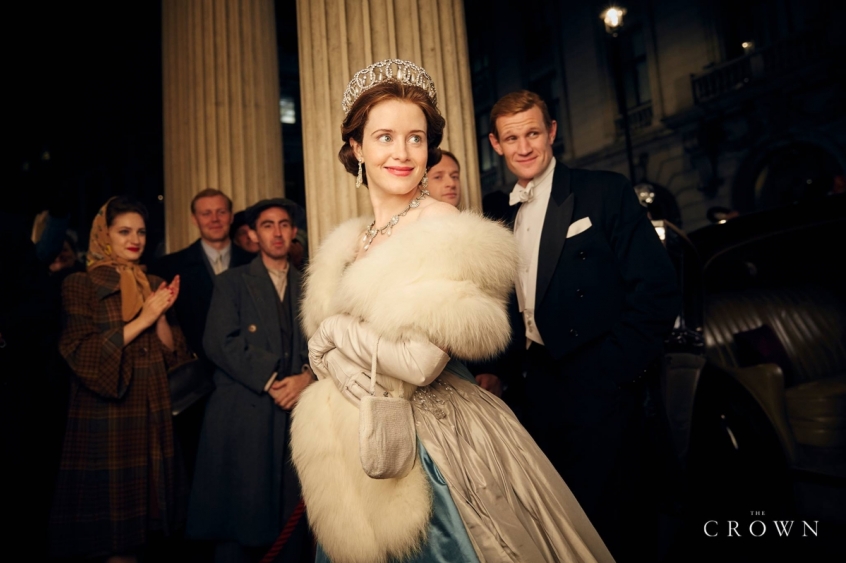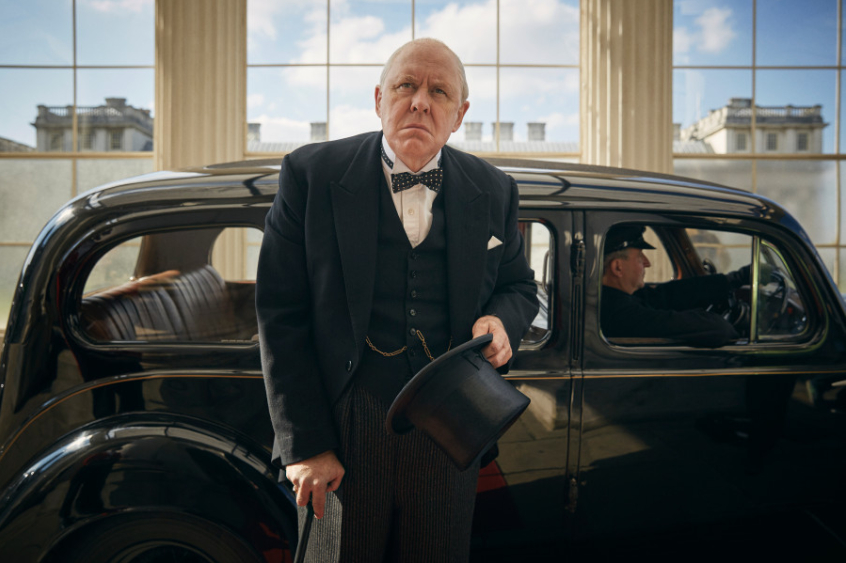'There are some disadvantages to crowns, but otherwise they are quite important things.'
So the Queen herself said, in a candid discussion looking back on 65 years since her coronation, to be aired this Sunday. The beloved monarch's words appear to have been about the literal weight of the bejewelled 5lb crown upon one's head, but there is a clear symbolic meaning too. As the acclaimed Netflix historical drama The Crown has shown, there is an immense, troubling weight to the Queen's responsibility, but a dignified glory too: she is an emblem of enduring grace that stays the course amidst the chaos so common in politics.
In a time of Trumpian madness, the Queen is no mere marionette but a living sign, a call to higher ways and an upward gaze; she shows us all what leadership means.
The Royal Family has personified the paradox of being eminently public, ever in the world's eye, and yet also notoriously secretive. They have every right to be of course, given the weight of regal obsession. The Queen does not tweet, which sadly can't be said of all world leaders.
The classy and beautifully crafted The Crown then offers that seemingly impossible insight: a chance to see the inner life of Queen Elizabeth II, thrust into power at age 25 with the weight of the world suddenly on her shoulders. It's a truly remarkable show both brilliantly acted and lovingly, dramatically told, narrating eloquently the meaning not simply of becoming famous or powerful, but of what it means to wear the crown.

Archaic as it may seem today, the long-held tradition of the divine right of Kings states that the authority of the monarch is derived from God, and is subject to no earthly authority. Biblically, it finds root in the stories of the anointing of Saul and David (see 1 Samuel), though that's not to say all subsequent human monarchies have inherent divine backing.
In The Crown's first season we see the young Queen (played with elegance and innocence by Claire Foy) wrestle with the notion that she's been 'chosen by God' to take the throne. She seeks counsel on this from her grandmother, Queen Mary:
'You said: "loyalty to the ideal you have inherited is your duty above everything else, because the calling comes from the highest source. From God himself." Do you really believe that?' Elizabeth asks.
Queen Mary responds: 'Monarchy is God's sacred mission to grace and dignify the earth, to give ordinary people an ideal to strive towards, an example of nobility and duty to raise them in their wretched lives. Monarchy is a calling from God.'
A little paternalistic perhaps, but it's for this reason that upstanding character and a wise stature not easily swayed by the whims of the day are so essential. The Queen must represent something bigger, transcendent even.
When she steps up to the throne for her coronation, her bitter uncle, the Duke of Windsor sums up the power of all the meaning of all the elegant pomp: 'Who wants transparency when you can have magic? Who wants prose when you can have poetry? Pull away the veil and what are you left with? An ordinary young woman of modest ability and little imagination. But wrap her up like this, anoint her with oil, and hey presto, what do you have? A goddess.'
But if The Crown narrates the godlike call of regality, it also gives us a Queen who is of course, only human. In season two we see a surprisingly thoughtful and sensitive engagement with the deep Christian faith of the Queen. She meets famed evangelist Billy Graham when he visits London, and the two reflect together on the meaning of being a Christian. Elizabeth relates the loneliness of being the head of the Church of England, when all she really sees herself as is 'a simple Christian'. In the same episode she wrestles with the very personal question of forgiveness: even the gracious Elizabeth struggles to look kindly on someone who has done the surely unforgivable.

Beneath the wealth and ceremony of royalty, we see in The Crown simply human beings who make human choices. Prince Phillip, Elizabeth's husband, is commissioned by her ailing father, King George VI: 'You understand these titles, the dukedom... they are not the job. She is the job. She is the essence of your duty. Loving here. Protecting her.' Sometimes the characters in The Crown falls short of the regal standards, other times they exceed them. Its reminiscent of St Paul's plea to all believers: 'I urge you to live a life worthy of the calling you have received' (Epheisians 4:1).
In this we see that the throne is both gift and burden, and its glory must be earned, lived up to, not simply assumed. The 65 years of dedicated service Queen Elizabeth has given clearly testify to the former.
Another fascinating aspect of The Crown is how it shows Britain's Prime Ministers, as is the tradition, coming weekly to stand before the Queen to update her on matters political. The jostling, ever-ambitious leaders come and go, but she remains – often providing a sharp rebuke when they lose their way. In her lifetime, the Queen has had 13 Prime Ministers come before her. Of course, she hasn't had to face the humiliation of democracy, of rising up only to fall, but that's the point: she represents something more enduring, even transcendent.
The madness of President Trump – his mendacious, populist uprising, his bullying of opponents, the chaotic folly and ugliness of his daily outbursts – make a compelling case for the quiet, noble wisdom that The Crown represents. Something grander than the whims of the day, someone who reigns rather than rules, and shows that if you're given power, you have to hold it lightly.
It's no easy burden. The weight of monarchy, The Crown shows us, puts Elizabeth at odds with her husband, family and even the nation – and its not like she asked for it. Yet as the TV show and real-life bear witness, she embraced the daunting call on her life with courage and faith: she's a leader we can truly look up to.
Like she said: 'There are some disadvantages to crowns, but otherwise they are quite important things.'
You can follow @JosephHartropp on Twitter













